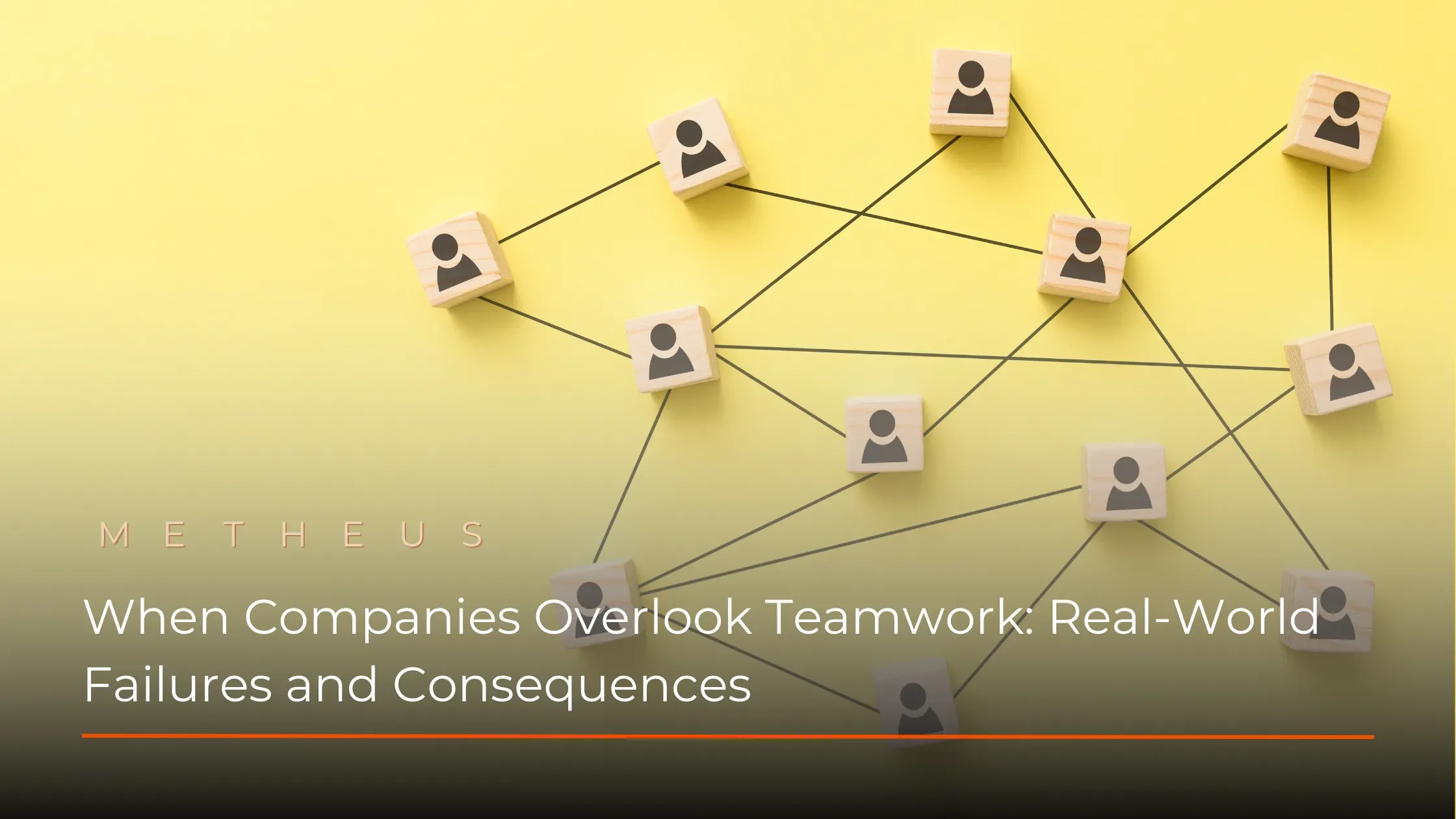When Companies Overlook Teamwork: Real-World Failures and Consequences
Market expansion may be a thrilling opportunity for businesses trying to expand their clientele and increase sales. However, entering a new market is not without its hurdles. Read our blog to find out more about "Why Companies Fail in Market Expansion"!
Failure Stories: Neglecting Teamwork Examples
In the realm of business, successful market expansion and growth heavily rely on the power of effective teamwork. Unfortunately, neglecting the importance of collaboration and synergy within an organization can lead to significant setbacks and missed opportunities. In this article, we explore compelling examples of companies that faced the consequences of neglecting teamwork. By examining these failure stories, we can gain valuable insights into the critical role teamwork plays in achieving success and avoiding pitfalls during periods of market expansion. Join us as we delve into these cautionary tales and uncover the lessons they offer for businesses aiming to thrive in today's competitive landscape.
Blackberry and Changing Phone Industry
BlackBerry, renowned for its iconic smartphones featuring physical keyboards that revolutionized the mobile industry, enjoyed an illustrious reign as a dominant player. However, the tides of change swept across the industry with the advent of touchscreen smartphones, spearheaded by the groundbreaking iPhone.
Regrettably, BlackBerry found itself ill-prepared to navigate the swift currents of this technological shift. While competitors embraced the touchscreen trend and introduced innovative user experiences, BlackBerry struggled to adapt and keep pace. This struggle was further exacerbated by a series of internal challenges that hampered their ability to effectively respond to market demands.
One of the primary factors that led to BlackBerry's eventual downfall was a disconnection and lack of synergy between its various teams. The marketing and product development departments, crucial pillars of success for any technology company, found themselves operating in silos with misaligned strategies. This lack of coordination resulted in significant setbacks, including delayed product launches, missed opportunities, and an overall inability to compete with the rapidly evolving market.
As the industry landscape rapidly shifted towards touch-based interfaces and intuitive user experiences, BlackBerry faced a formidable uphill battle. While their physical keyboards had once been a key differentiating factor, they now appeared antiquated and out of touch with consumer preferences. Despite their loyal following, BlackBerry's failure to adapt to the changing landscape, coupled with internal inefficiencies, ultimately contributed to their diminished market share and waning influence.
In retrospect, the rise and fall of BlackBerry serve as a poignant reminder of the critical role teamwork, collaboration, and adaptability play in the success of any organization. The company's inability to align its teams and adapt its strategies to meet evolving consumer demands highlights the importance of fostering a cohesive and agile internal ecosystem. It stands as a cautionary tale for businesses across industries, emphasizing the need to embrace innovation, foster effective cross-functional collaboration, and remain vigilant in the face of disruptive technologies and changing market dynamics.
McDonald's Failure to connect managers and employees
McDonald's, a global fast-food giant, serves as a stark example of the consequences that can arise from neglecting teamwork. Despite enjoying tremendous success and dominance in the fast-food industry, McDonald's faced significant challenges when it failed to adapt swiftly to shifting consumer preferences and market trends.
One of the primary areas where McDonald's neglected teamwork was in its struggle to establish effective communication channels between upper management and frontline employees. This lack of collaboration and feedback resulted in a disconnect between the corporate decision-makers and the employees who directly interacted with customers. Consequently, crucial insights and ideas from frontline staff were overlooked, impeding the company's ability to comprehend and address evolving customer needs efficiently.
In the case of McDonald's, the management placed so much emphasis on innovation that it failed to see how making significant changes to the way food is prepared would slow down operations and raise costs.
The head of the US division of the fast food chain overhauled the organization's entire food preparation system to introduce a concept called "Made for You" because he thought customers wanted more customized orders.
Burgers were prepared to order with freshly toasted buns as part of the initiative. It necessitated costly equipment upgrades and, naturally, it markedly slowed down wait times. Customers were suddenly required to wait twice or three times as long for items that they had previously been able to pick up in a short period of time. But McDonald's management insisted on making an effort to make it work. However, "Made for You" ultimately failed and vanished into obscurity. It was a costly error that also reduced the value of the company's stock.
The tale of McDonald's serves as a stark reminder of the vital role teamwork plays in a company's success. Neglecting effective collaboration and failing to consider the potential consequences of significant changes can lead to costly errors and a decline in overall value. It underscores the importance of fostering a culture of teamwork, open communication, and strategic foresight to navigate the ever-evolving landscape of customer preferences and market dynamics.
If you want to learn more about business strategies, book your session now!

